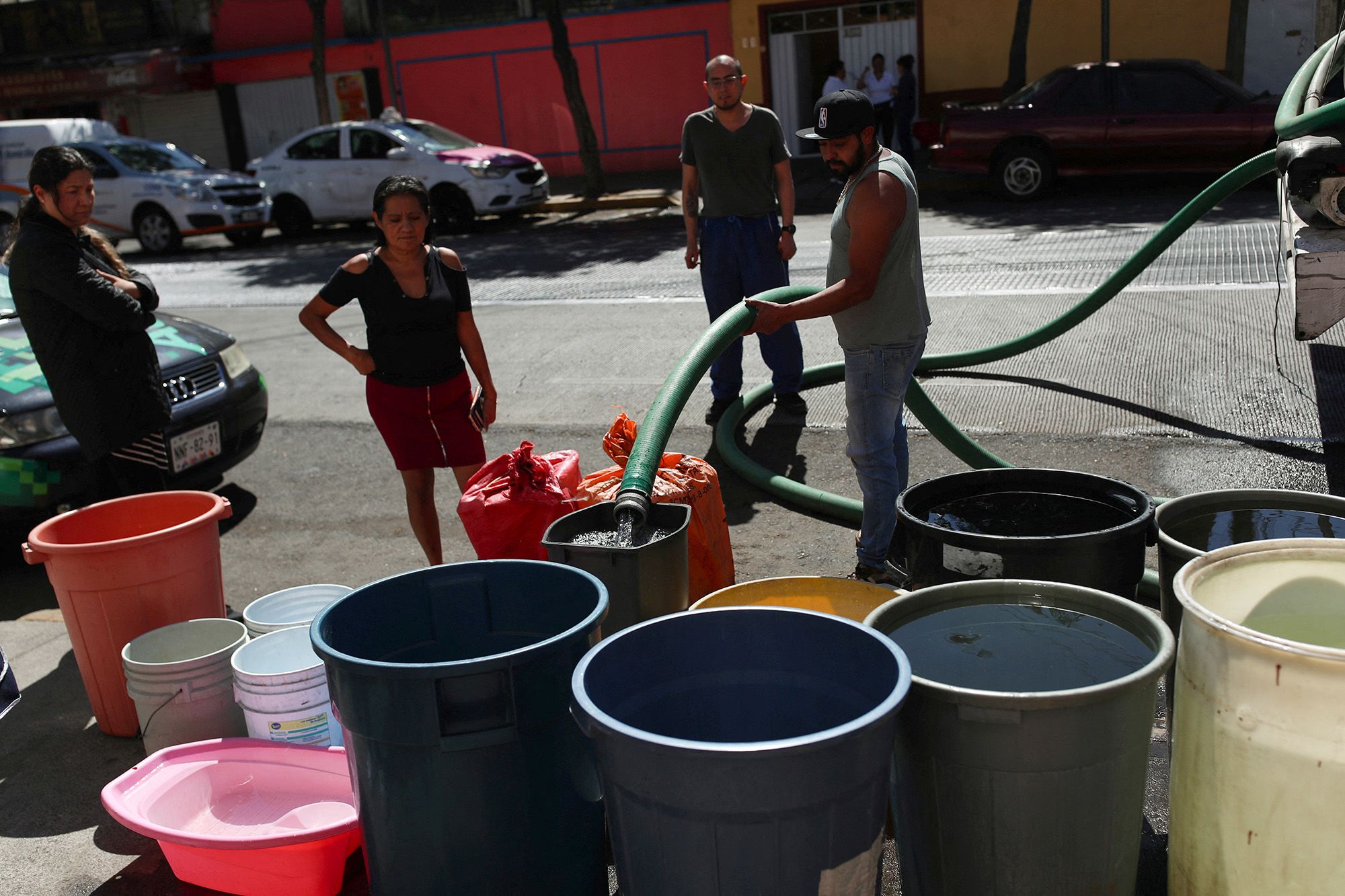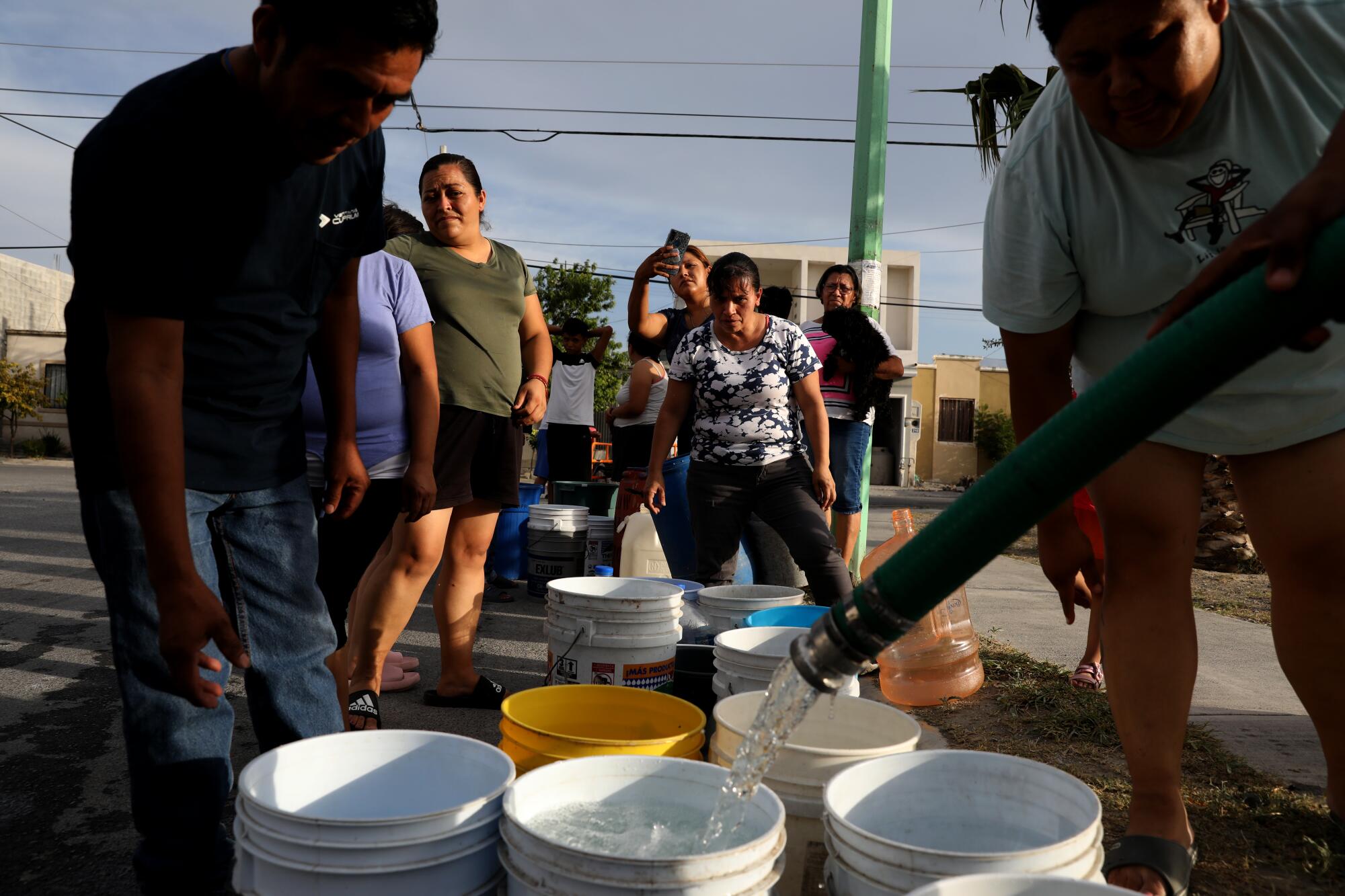Mexico Could Run Out Of Water By August As It Reach Dangerous Levels
Mexico has been experiencing prolonged dry conditions due to depleting reservoirs and a growing population, raising alarms about a potential water crisis. Recent data from the National Oceanic and Atmospheric Administration reveals that a significant portion of Mexico could run out of water by August.
Author:Suleman ShahReviewer:Han JuFeb 27, 20244K Shares169K Views

Mexico has been experiencing prolonged dry conditions due to depleting reservoirs and a growing population, raising alarms about a potential water crisis. Recent data from the National Oceanic and Atmospheric Administrationreveals that a significant portion of Mexico could run out of water by August.
Consequently, concerned citizens in Mexico City have mobilized, demanding urgent measures to address the situation. In late January, Reutershighlighted an incident where residents forcibly opened the gates of Mexico's National Water Commission, resulting in property damage.
Mexico May Be Just Months Away From Running Out Of Water

Mexico City, home to approximately 22 million people, is grappling with a severe water crisis that threatens to leave large parts of the megacity without water in the coming months.
Since the beginning of 2024, the city and its surroundings have been experiencing moderate to exceptional drought conditions. In response to the dwindling water supply, authorities have imposed stringent water restrictions, allowing many residents just an hour or so of water every few days.
A convergence of factors, including diminishing rainfall, rising temperatures, deteriorating infrastructure, and urban expansion, is pushing the city's water supply to the brink. Experts caution that without immediate and drastic measures, a "day zero" scenario, where water services collapse entirely across the city, could be just a few months away.
Jorge Alberto Arriaga, the coordinator of the water network for the National Autonomous University of Mexico, emphasized the urgency, stating:
“„We're extracting water at twice the speed that the aquifer replenishes. This is causing damages to infrastructure, impacts on the water system, and ground subsidence.- Jorge Alberto Arriaga
Approximately 60% of Mexico City's water comes from an overused underground aquifer, leading to land subsidence at a rate of around 20 inches per year since 1950. The remaining 40% is pumped uphill from outside the city, but leaky infrastructure results in a significant loss - 40% of the water is lost in transit.
The Cutzamala System, the city's largest water supply system, operated at only 39.7% of its full capacity at the end of January, marking a decline from 41% in December and a sharp drop from 54% in January 2023, according to Reuters.
The city's vulnerability is further heightened by its geography and historical development. Built on soft, clay-rich soil after the Spanish drained Lake Texcoco, Mexico City is susceptible to earthquakes and droughts, worsened by climate changeand the current El Niño climate pattern.
Officials acknowledge the need for urgent action and plan to dig more wells around the city while improving wastewater treatment to secure an adequate water supply for all residents. However, whether these measures can avert "day zero" or if it has already arrived remains uncertain.
José Antonio Rodríguez Tirado, a water management consultant, stressed the immediacy of the crisis, stating:
“„We have to consider that 'day zero' is now because the rivers are contaminated, the springs are overexploited, this is what we must understand.- José Antonio Rodríguez Tirado
With the monsoon season not expected until May or June, residents face an impending water shortage with uncertainty about when relief will come.
Conclusion
Mexico City is on the brink of a water crisis as persistent drought and rising temperatures threaten the water supply for its nearly 22 million residents. Concerns are mounting that the city could face a complete water shortage within a few months.
Residents are frustrated by the dwindling water levels, and have taken to the streets in protest, highlighting the severity of the situation, especially in areas witnessing record-low water levels.
In response to the crisis, authorities have implemented water conservation measures, including restrictions on aquifer pumping and urging residents to conserve water. However, atmospheric scientist Christian Domínguez Sarmiento cautions that the reliability of the upcoming rainy season is uncertain due to shifting weather patterns.

Suleman Shah
Author
Suleman Shah is a researcher and freelance writer. As a researcher, he has worked with MNS University of Agriculture, Multan (Pakistan) and Texas A & M University (USA). He regularly writes science articles and blogs for science news website immersse.com and open access publishers OA Publishing London and Scientific Times. He loves to keep himself updated on scientific developments and convert these developments into everyday language to update the readers about the developments in the scientific era. His primary research focus is Plant sciences, and he contributed to this field by publishing his research in scientific journals and presenting his work at many Conferences.
Shah graduated from the University of Agriculture Faisalabad (Pakistan) and started his professional carrier with Jaffer Agro Services and later with the Agriculture Department of the Government of Pakistan. His research interest compelled and attracted him to proceed with his carrier in Plant sciences research. So, he started his Ph.D. in Soil Science at MNS University of Agriculture Multan (Pakistan). Later, he started working as a visiting scholar with Texas A&M University (USA).
Shah’s experience with big Open Excess publishers like Springers, Frontiers, MDPI, etc., testified to his belief in Open Access as a barrier-removing mechanism between researchers and the readers of their research. Shah believes that Open Access is revolutionizing the publication process and benefitting research in all fields.

Han Ju
Reviewer
Hello! I'm Han Ju, the heart behind World Wide Journals. My life is a unique tapestry woven from the threads of news, spirituality, and science, enriched by melodies from my guitar. Raised amidst tales of the ancient and the arcane, I developed a keen eye for the stories that truly matter. Through my work, I seek to bridge the seen with the unseen, marrying the rigor of science with the depth of spirituality.
Each article at World Wide Journals is a piece of this ongoing quest, blending analysis with personal reflection. Whether exploring quantum frontiers or strumming chords under the stars, my aim is to inspire and provoke thought, inviting you into a world where every discovery is a note in the grand symphony of existence.
Welcome aboard this journey of insight and exploration, where curiosity leads and music guides.
Latest Articles
Popular Articles